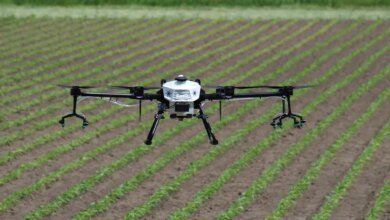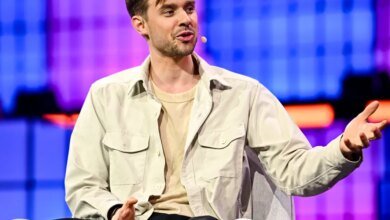This Cisco exec started at the $306 billion company 30 years ago after interviewing for the wrong gig. It inspired her to fight for entry-level jobs

This fear may end up being a coincidence. That was the case for Fran Katsoudas, Cisco’s chief people, policy and purpose officer, who began her three-decade career at the digital communications giant after encountering just such confusion. She spoke with HR Brew about how this unfortunate incident led to her career, and how she thinks about the opportunities available to emerging talent today amid labor unrest in AI.
Human Resources Call Center. Katsoudas, who was working in business development for a startup, thought she was interviewing for a similar role when she discovered she was actually interviewing for an entry-level customer support job at a Cisco contact center, a position that required her to answer up to 80 calls a day once she was hired, many of them from dissatisfied customers.
Although the job was below the pay grade for the role she intended to interview for, and she was unfamiliar with Cisco technology, something about the position caught her attention. “I realized it was just a great opportunity for me to learn something new. It’s funny, because I think it was the first time I trusted my intuition,” she told HR Brew.
Katsoudas took the job, and the following year was promoted to team supervisor. She was later offered a role as director with this team, but she turned down the opportunity. It worked for her.
“I stepped down from the role because my realization was that I had not made any decisions, up to that point, based on job title or level,” she said. “It took me two years from that point on to become a manager in a completely different field, which was human resources.”
Katsoudas moved to Cisco’s HR department in 2003. She said she was interested in learning about the inner workings of HR, and was impressed by the team’s focus on integrating business strategy into HR, something they did years before it became a common best practice.
“We were able to take elements of Cisco’s technology strategy and say, how does that relate to the decisions you make about your people, culture, and toolset,” she said. “I liked this problem. I thought it was really messy, and it would be nice to solve it.”
Rethink entry level. Katsoudas became chief human resources officer in 2014, and chief people, policy and purpose officer in 2021. During her decade-long leadership of HR, she focused on creating opportunities, like the ones she was offered previously, for early career talent.
“I just remember feeling so much gratitude for the zigzag I had experienced in my career and feeling an obligation to help others get their own zigzag that they could be really proud of or really energized by,” she said.
Many entry-level roles have faced significant disruption due to AI-driven automation. This is true of Katsoudas’ first role at Cisco. In 2022, the company deployed an AI assistant (upgraded this year) designed to answer low-level customer support inquiries that come to its technical assistance center. The AI technology has now handled more than 1 million cases, and Cisco has eliminated top-tier customer support roles.
This transformation didn’t happen overnight, Katsoudas told HR Brew.
“What happened was that the existing team started getting some help with certain types of cases with clients,” she said. “As it got bigger, the AI got involved, and then those people became second-level support.” Now, entry-level contact center employees are being assigned to second-level support roles, which has prompted Cisco to rethink the onboarding of this team.
“I feel like our approach to onboarding is much stronger than it was before,” she said, adding, “You have to give them everything you learned from the first level because they are stepping into an area that technology couldn’t solve. Maybe a client has two or three problems they need help with. Maybe it’s not that simple.”
Her team is currently focused on using AI to codify the skills and tasks required of every Cisco employee, and understanding how this will shift as technology evolves. “My goal for Cisco and for the enterprise is to leverage AI to help people engage with AI, and to have as much transparency as possible about how we see the world changing,” she said.
“I don’t know anyone who would say that the role they have today is exactly the same as it was a year ago. Our roles are constantly evolving,” she said, noting that most jobs were evolving long before AI put these transformations under the microscope.
Despite this natural progression, she said HR teams must be more intentional about the opportunities they create for entry-level talent, whether through mentoring programs, new hiring communities, formal onboarding processes, or other initiatives.
“I think all people work so fast that if you don’t build programs around that, you might not get the impact you want,” she said, noting that the first six months of a person’s job are extremely important to their longevity, performance, and satisfaction at the company. “I always laugh a little because [new hires] They are the investments you make as a company, but I’ve always seen them return that investment and more as well.
This report was originally published by HR drink.
2025-11-17 21:37:00




